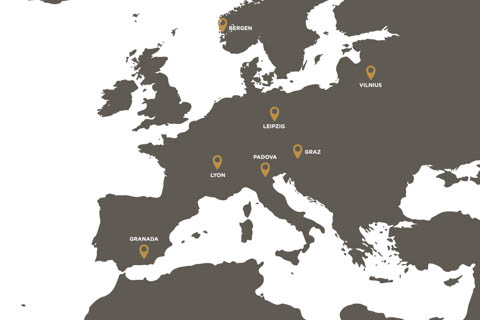Programme structure
Please note that certain changes in programme are possible.
{variantas 22781}
*There is one final State Exam for the Dentistry study programme, which consists of two parts (practical and written).
The assessment of a student is directly related to the learning outcomes. The principles of the assessment are set out by the VU Study Provisions, VU Procedure for the assessment of study results and the resolutions of the Council of VU FM, which are described in the course descriptions of each study subject.
In all subjects of the Dentistry study programme, each student’s achievements are assessed by an examination. The evaluation of the study subjects is performed by applying the principle of an accumulative score, i.e. apart from the exam, the final assessment is also determined by the tasks, activities and tests completed throughout the semester (performance in lectures, tests, clinical tasks, presentations and other self-study assessments, etc.). All requirements for the assessment are provided to the students together with the course unit descriptions. At the beginning of each semester, the teacher introduces the students to the assessment requirements. The continued evaluation ensures regular screening and an assessment of the knowledge the students have gained during each semester.
Important information regarding the Lithuanian Language course during the study programme:
- VU Faculty of Medicine offers students a Lithuanian Language course FREE OF CHARGE
- A B1 level of Lithuanian language is achieved after four semesters of attendance
- One semester course is 2.5 ECTS credits
- A student shall attend the classes two times per week
Why taking the Lithuanian Language course is important:
- During the clinical courses, it is necessary to communicate with patients. Knowing the language eases communication and considerably helps in the learning process.
- It is easier to obtain licensing in one’s country of choice. After graduating from the integrated Medicine study course, and having a B1 level of the Lithuanian language, graduates may apply for a doctor’s medical practice licence according to the Law on Medical Practice of the Republic of Lithuania. That means graduates can obtain the licences issued in Lithuania. Later on, they could start a practice in Lithuania or in another country where the LT licence is valid, or it might help them to obtain a licence in that country faster and easier. Applying for licences in Lithuania is not mandatory, but it might shorten the procedure and the time required to obtain a licence in another country.










